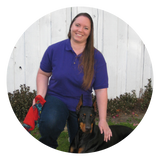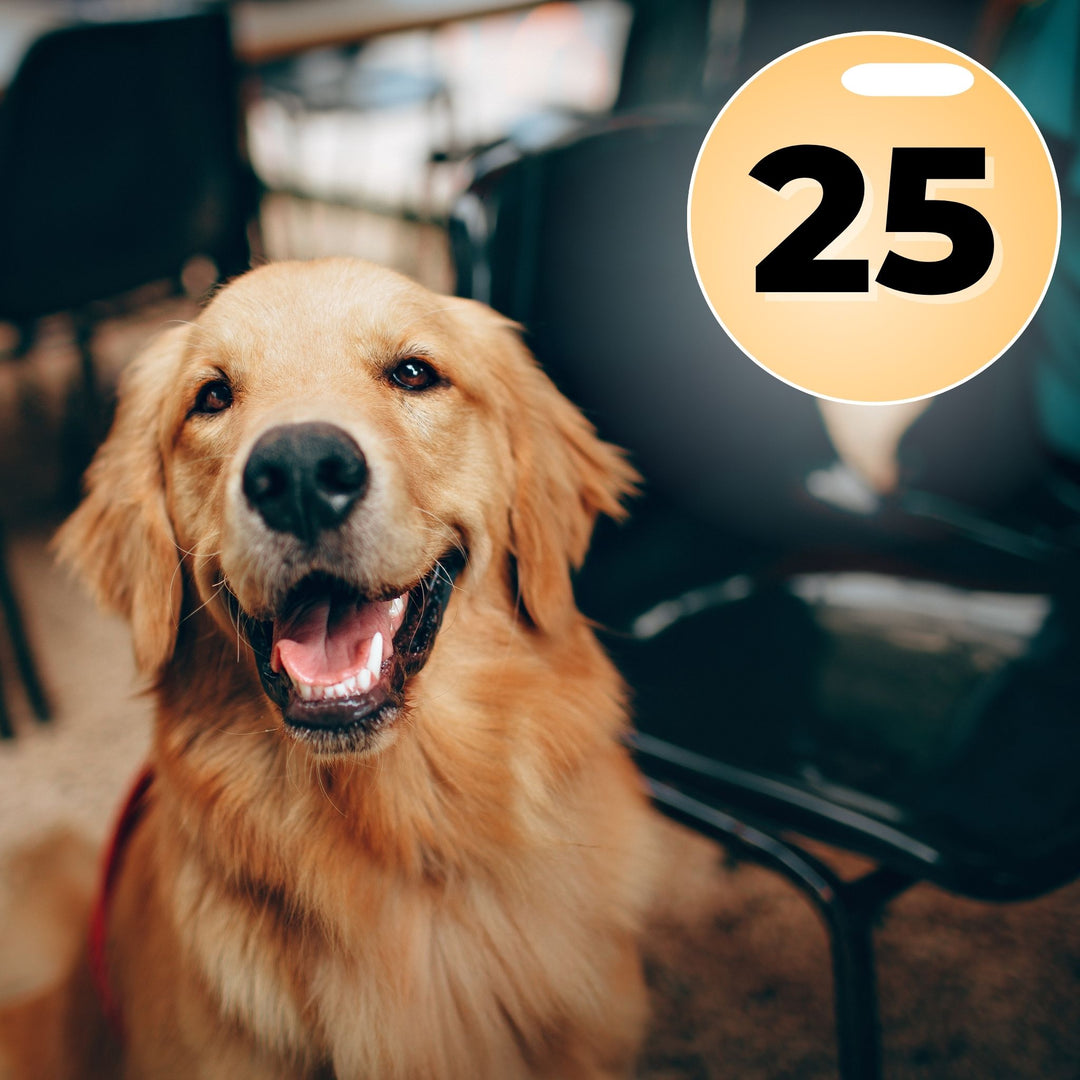Where Are Your Successful Repetitions?

Whether we want to admit it or not, we are an important part of the Scent Work team and equation. Not only are we our dogs’ teammates during a given search, but we are also their guide throughout their entire sniffing journey, designing their searches, deciding what to work on and what to pass on by. Thus, we must ensure we are the best supportive handler, helpful teammate, and nurturing teacher we can possibly be. If we neglect any of these roles, it is wholly within the realm of possibility that we could hamper our dog’s ability to truly shine.
What many of us do not realize, is that what we learn, and experience, very well affects whether we can step up to the plate the way that we should.
HISTORY MATTERS
Picture it: you have practiced for weeks prepping for an upcoming Scent Work trial. You have followed all the advice: read and understood the rules, internalized the skills being tested, took the time to work on and perfect those skills as much as you possibly could. You are confident that your dog is ready!
The very first search you tackle is an exterior search. You’ve done these before in lower levels of competition, but this search is on grass, with a handful of trees and even a fence post within the search area. No matter, there are two hides to find. Your dog will do fine. Sure enough, your dog nails the first hide, confidently and happily. You call “Alert!” and hear that addictive “Yes!”. You reward your dog and then urge them on. One more to go!
Suddenly, your dog doesn’t seem so certain. They are searching, this way and that, seeming to catch the odor and then just as quickly, losing it. The confidence you felt before is beginning to wane. You have never seen this before. What are they doing? Back-and-forth and still your dog cannot nail down where the hide is. They suddenly look back at you which only fills you with dread. Was THAT an alert? It sure didn’t look like it! Should I call it? What should I do?!
As you are arguing with yourself, your dog shakes off, heads over to the nearby fence post, gives it a brief sniff before promptly marking.
Your heart sinks. That’s it, it’s over. The entire day, shot, after the very first search. You did all the work. You did all the planning. You followed all the advice. You drove hours to get here, booked the hotel, spent all this time and money and now…it is just, over.
Crestfallen, you find yourself dreading exteriors as the days, weeks and months go by. Every walkthrough becomes torturous, and you can feel your hope fade away as you see yet another exterior with grass, trees, and those evil damn fence posts. Why do trial officials insist on having those in their search areas?!
History matters.
What we, as handlers, experience, matters.
What we learn and associate in those moments, matters.
How we react to those moments, matters.
Now, it is unfair to claim this type of learning or negative association is something that is done consciously or willingly. But it is crucial to understand, nonetheless.
The reason being is that you are now hamstringing your team every single time you tackle an exterior search, since you are EXPECTING that your dog will NOT succeed but will instead mark.
So, you over-compensate. You will over-handle your dog. You redirect them away from any and all vertical spaces or even prevent them from checking those vertical spaces at all, when in truth, those may be the clearest landmarks the dog NEEDS to solve the odor puzzle. You are more likely to be tense, stressed, not breathing and short-tempered, all of which will travel right down your leash and suffocate your dog, extinguishing the flame of joy and enthusiasm you NEED for them to do their job well. Your history is quite literally snuffing out the flame of potential which represents your team’s future success.
This is not a dog problem. Nor is it a dog training problem.
This is a handler problem.
CONCEPT OF SUCCESSFUL REPETITIONS
A concept I speak about ad nauseum in my own training, successful repetitions are the foundation of success you are building your training on top of.
For instance, having a dog go into a space and focus solely on finding their hide. This begins by working in familiar and low-distraction areas where this is almost a guarantee that they will do just that! Dog comes up, finds their hide, and receives an enormous amount of praise and reward. The lesson is learned: find my hide as quickly and efficiently as possible and WONDERFUL THINGS HAPPEN!
This is a successful repetition.
You then incrementally progress from there. A single hide in the same familiar location with a low-level barely-noticeable-to-the-dog distractor. Dog finds hide and is immediately rewarded handsomely. Yet another successful repetition in the books.
This incremental progression continues until you can have a single hide in a highly distracting environment. The foundation of successful repetitions is so extensive, deep, and strong, the dog’s calculation is that they MUST find their hide, there are no other plausible alternatives!
This same approach should ALSO be taken regarding ourselves as handlers.
Not only must we teach and SHOW the dog they can indeed do a certain task. We must also SEE and EXPERIENCE them successfully tackling said task.
Going back to the marking in exteriors scenario, there has been learning on your end of the leash that marking in exteriors, especially when there is grass, trees, and fence posts present, is highly likely, if not a foregone conclusion. Therefore, your task is to build a foundation of successful repetitions where this does NOT happen. To RE-LEARN a new reality: that your dog CAN indeed tackle an exterior search, find their hide and NOT mark.
Start by offering a set-up that doesn’t illicit those subconscious associations, meaning devoid of the grass, trees, and dreaded fence posts. Do a simple single hide search, even leveraging an open paired odor container, on a paved surface such as your driveway.
“This is a waste of time!”
How so? Your foundation is currently a rubble pile of negative emotions, muddied messages to your dog and horrid mental baggage.
Instead of trying to duct tape that mess together, crossing your fingers and hoping for the best, why not build a new, better, and stronger foundation than what you had before? Without your foundation, you quite literally have nothing.
Design these searches where you KNOW, intellectually, that your dog will succeed. Then run that search. Allow the feeling to wash over you. Don’t minimize it! Your dog tackled an exterior search and was focused solely on finding their hide. You breathed, allowed them to search and rewarded them handsomely when they were correct. That is a whole lotta of success if you ask me!
From there, move your containers closer to the grass. Work incrementally. Be certain to breathe before you start. Feel those doubts creeping in? Remember what your dog JUST did. They found their hide.
Video this search and watch it back. Truly SEE what your dog is doing as they travel along the line of boxes, from the pavement to the grass, and successfully find their open paired odor container. There was no inkling that they were going to mark. They did exactly what you wanted them to do.
Note how you handled yourself. Were you breathing? Were you smiling? How did you go about rewarding your dog? How did you handle your leash or long line? How did you leave the search area? Did you party with them?
Think through how you can create more successful repetitions, for your dog AND yourself until you are, indeed, tackling an exterior search with grass, trees, and those ever-looming fence posts.
Does this only apply for dogs who mark in exterior searches? Of course not. This concept of identifying the associations you have made as a handler applies in all contexts of Scent Work. Whether you need to run a search on- or off-leash and are concerned about your leash handling skills. Whether there is the possibility for inaccessible hides, and you stress about properly reading your dog. Whether there is a slippery floor or multiple room interior you have to tackle and you are worried your dog will not even search. Whether there is an unknown number of hides and the thought of calling "Finish" incorrectly fills you with dread. Whether you called "Alert" on a given item in one trial, heard a "No" response and see that very same type of item in yet another trial. Is this item simply there to taunt you?!
The possibilities are quite literally endless.
Use the concept of building successful repetitions to counteract these assumptions that are plaguing and hobbling your team, allowing yourself to learn NEW lessons that both you and your dog can indeed do this and do it well.
FINAL THOUGHTS
We do not give enough credence to the fact that learning happens on both ends of the leash. This is true every single time we step to the line with our dog, whether in training or when we are trialing. This learning can result in both positive and negative associations being created or strengthened. Weaving complex networks of emotions that seem impossible to untangle.
But if we pause, for just a moment, and truly ponder the power of ensuring successful repetitions for both ourselves and our dogs, suddenly the path doesn’t seem so arduous. To recognize that we are not above making these associations, to undergo this learning.
Instead, owning up to this reality and leveraging this to our ADVANTAGE, by being mindful in our training, observant and honest about the results and KIND to both our dogs and ourselves when something doesn’t go as intended. Shifting the focus back onto how we can shore up that foundation with more successful repetitions instead of taking a sledgehammer to it thanks to our baggage of history, mistakes, worries and concerns.
Our dogs need us to be the best teammates possible. Let’s make that a bit easier by ensuring we are offering as many successful repetitions as possible.
Keeping in mind the value of your overall expectations, using affirmative statements and applying micro-goals can greatly help in creating more successful repetitions for yourself and your dog. Be sure to check out Michelle Doram's Great Expectations: Creating your Scent Work Trial Experience Webinar which delves into this very important topic.

Dianna has been training dogs professionally since 2011. She has done everything from teaching group training classes and private lessons, to specializing in working with fearful, reactive and aggressive dogs, to being a trial official and competition organization staff member.
Following a serious neck and back injury, Dianna was forced to retire from in-person dog training. But she was not ready to give up her passion! So, she created Pet Dog U and Scent Work University to provide outstanding online dog training to as many dog handlers, owners and trainers possible…regardless of where they live! Dianna is incredibly grateful to the amazingly talented group of instructors who have joined PDU and SWU and she looks forward to the continued growth of PDU and SWU and increased learning opportunities all of these online dog training platforms can provide.
In June 2021, Dianna and her business partner, Sean McMurray launched Cyber Scent Work, Inc., an organization that operates in the gray space between training and trialing in Scent Work. With Cyber Scent Work, Inc., handlers have the opportunity to earn Qs, titles and ribbons while also receiving helpful training advice regardless of whether they qualify or not! Be sure to check out Cyber Scent Work, Inc., you will be happy you did!
Join Our Newsletter
Stay up to date with all the happenings at Scent Work University, including the release of new online courses, seminars, webinars, eBooks and receive exclusive promotions and discounts!




